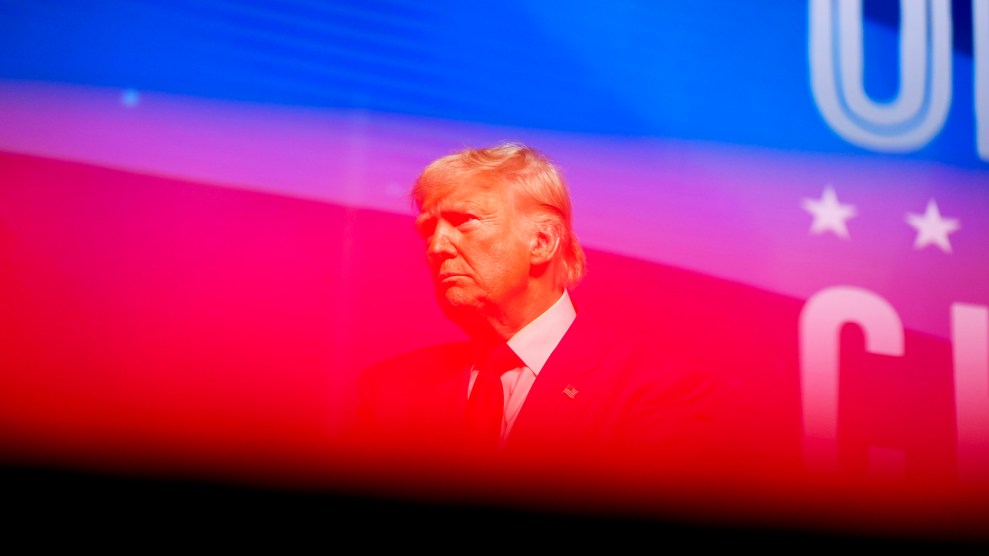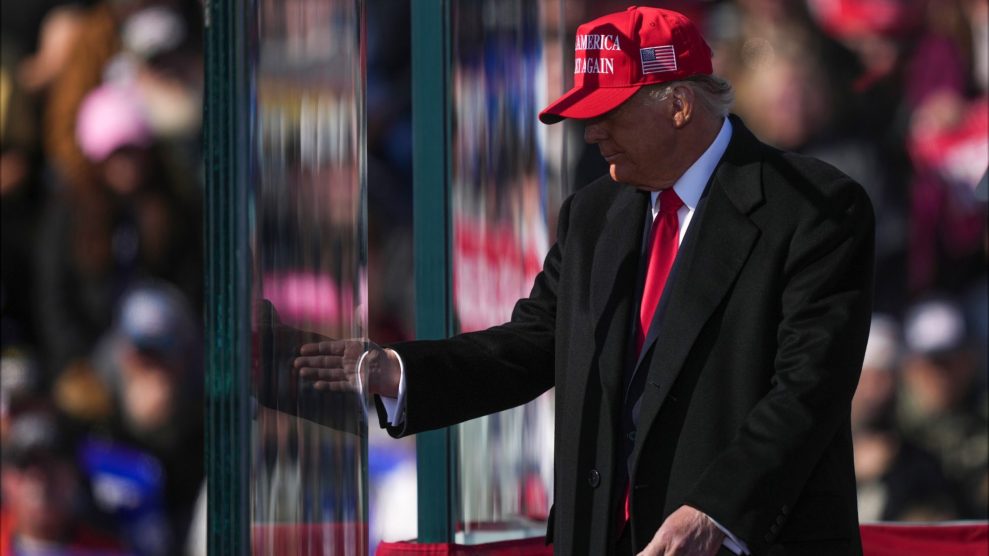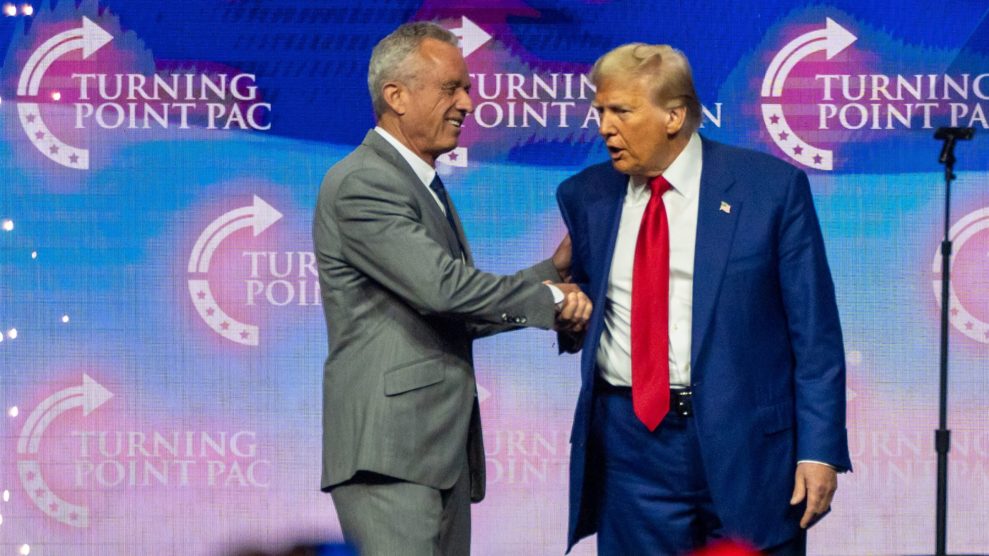
Alex Brandon/AP
Former President Donald Trump will be returning to the White House for a second time after beating Vice President Kamala Harris in Tuesday’s election.
After running on a dark campaign of retribution, Trump tried to strike a conciliatory tone in his victory speech at the Palm Beach County convention, where thousands of his jubliant supporters had assembled for what Trump promised would be “the last rally.” In his speech, he declared his intention to “help the country heal,” and promised that his next administration would be “the golden age of America.” He thanked his campaign, and after Sen. JD Vance said a few words, Trump quipped, “Turned out to be a good choice!”
Among the others he thanks for his victory were podcasters Joe Rogan and Theo Von, in an acknowledgement of the underappreciated role that the medium played in his outreach to the young men who helped return him to office. Trump barely mentioned his opponent in the race and instead focused on his remarkable comeback, which Trump called “a triumph of democracy.”
“It’s time to put the divisions of the past four years behind us,” he said.
After President Joe Biden stepped down and Harris became the Democratic nominee in July, polls showed the race at a virtual dead heat, with both candidates within the margin of error in all the major swing states. But Trump succeeded in breaching the “blue wall” state of Pennsylvania that Harris could not afford to lose. He also won handily in North Carolina, Georgia, and appeared very likely to take Wisconsin, meaning he was certain to exceed the 270 electoral votes he needed to win a second term.
Harris did well with women voters of all ages and regions, but it wasn’t enough to make up the lost ground she lost among Black men and especially Latino voters, who appeared to break in surprisingly large numbers for Trump. Trump’s campaign had focused on peeling off support from those traditionally Democratic groups, and while they still voted in force for Harris, enough switched sides to make a difference.
As a 2024 candidate, Trump himself was no more disciplined than he was in 2016 or 2020. But his campaign was far more professional than it had been in his previous races. “Donald Trump is a movement,” former Rep. Tom Davis (R-Va.) told me in the spring. “That’s how he won this thing originally. But it was kind of rag tag. This time he has everything going for him. He has a huge, disciplined ground operation, a coordinated message operation.”
A lot of that, Davis suspected, could be credited to campaign co-chair Chris LaCivita. “He’s the kind of guy that Trump listens to outside of the family and can take control.”
In October, though, Trump seemed to revert to form when he brought Robert F. Kennedy Jr. into the fold and promised to put him in charge of “making America healthy again.” Kennedy proceeded to make news with kooky promises that the second Trump administration would ban childhood vaccines and get rid of fluoride in drinking water.
Trump also briefly brought back Corey Lewandowski, his 2016 campaign manager who in 2021 fell out of Trump’s orbit after the wife of a big donor accused him of making unwanted sexual advances. Despite this series of self-inflicted wounds, campaign co-chairs LaCivita and Susie Wiles ultimately let “Trump be Trump” while keeping the rest of the campaign on track and focused.
During the closing days of the campaign, the Daily Beast published a story alleging that LaCivita was “double dipping” and making millions from Trump’s campaign and its ad buys (he denied the claim vociferously). The Atlantic later reported that the story had infuriated Trump, who considered firing LaCivita. In previous campaigns, Trump had hired and fired a handful of campaign managers, including Paul Manafort, who ended up going to prison for money laundering, tax fraud, and illegal foreign lobbying connected to his years working for Ukrainian politicians. (Trump later pardoned him.) But Wiles and LaCivita managed to stay on for the strong finish.
Trump also consolidated his support among the nation’s business leaders in a way he had not in his previous two campaigns. Most notably, billionaire Elon Musk took a starring role in Trump’s campaign, spending $150 million of his own money to fund a last minute get-out-the vote effort by paying an army of canvassers to knock on doors for the candidate. Whether Musk can really take credit for Trump’s victory is an open question. Especially because some of those workers seemed to be doing a good job of taking Musk’s money and not too much else.
News reports noted that as many as a quarter of the voter contacts made by Musk’s canvassers in Arizona and Nevada were bogus, as the workers figured out how to game the canvassing app to look as though they were out beating the bushes for every last vote when in fact they were hanging out at Starbucks. But Trump’s victory will undoubtedly be viewed as a victory for Musk as well, and perhaps serve as encouragement for other oligarchs to take a more direct role in running campaigns, leaving the national party even weaker.
Trump has promised that among his first acts upon taking office will be to close the border, free some of the incarcerated January 6 rioters, fire Special Counsel Jack Smith (who has been investigating Trump for his mishandling of classified documents and his role in fomenting the January 6 riot), and launch his campaign of mass deportations.
Some time before the race was called, Cedric Richmond, co-chair of Vice President Kamala Harris’ campaign informed her supporters that she would not be speaking tonight, and would address them in the morning.













